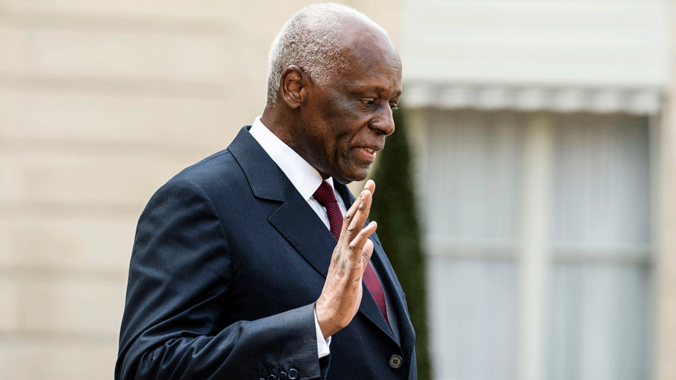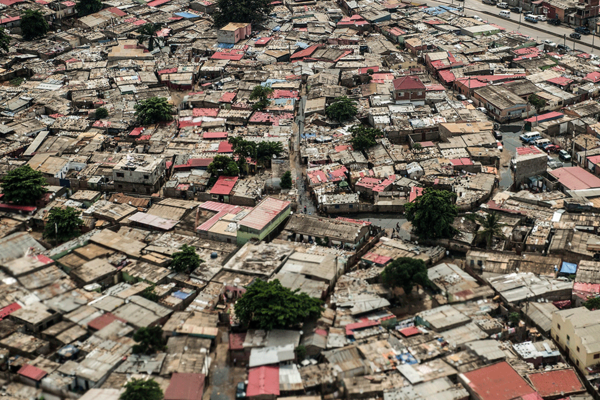PBS: Escaping Eritrea … [Read More...] about ካብ ውሽጢ ቤት ማእሰርታት ኤርትራ
Dos Santos exit plan but a ploy
Claudia Gastrow |
The Angolan president is buying time in an attempt to diffuse growing political tensions and balance popular demands with his personal interests.

On March 11 this year, Angolan President José Eduardo dos Santos, in power since 1979, announced his intention to step down in 2018. The statement was unexpected and no further explanation has been forthcoming.
Dos Santos has previously indicated his intentions to step down. In 2001, he made a similar announcement but remained in power. There is no particular reason to think his current statement is more genuine. But, even if he relinquishes his position, he will not relinquish power.
The key political factors in his manoeuvring are not only Angola’s elites but also, more importantly, the general population.
The country is in the midst of its worst economic crisis in years, which is taking a heavy toll on the population. Oil accounts for 75% of Angola’s fiscal revenue and 95% of its exports. The crash of the international oil price since 2014 has pushed the country into crisis. Lower oil profits, the 2013 de-dollarisation legislation and international banks’ refusal to sell dollars to Angola until it improves the regulation of its banking sector have led to a critical shortage of foreign reserves.
Angola is dependent on imports, even for basic goods, and the shortage of foreign exchange has resulted in a dearth of food and medicine. Concurrently, inflation is increasing and the country’s currency, the kwanza, has rapidly devalued.
Private companies have retrenched thousands of workers. To top it all, Luanda’s weak public health system is struggling to cope with a yellow fever epidemic.
The crisis has forced Angola, historically averse to loans with conditions attached, to open funding negotiations with the World Bank.
Although the Angolan elite, whose financial interests are global, are unlikely to be significantly affected, poor and middle-class Angolans have already seen the real value of their salaries plunge, and they will begin to feel the pinch of shortages and unemployment.
About 43.4% of the population lives below the income poverty line and, of those working, 56.4% are classified as “working poor”. The country has a 26% unemployment rate. For those people already struggling, the economic situation is introducing even further strain.
Since the end of civil war in 2002, the state has walked a political tightrope between repression and managing popular demands for greater political and economic opportunities. Dos Santos’s announcement should be understood in a context where it has become increasingly difficult to balance popular demands with his personal interests.
Succession dilemma
The effects of Dos Santos’s possible retirement are difficult to predict. There is no clear succession plan.
It was previously suggested that Vice-president Manuel Vicente, the former chief executive of the national oil company Sonangol, was Dos Santos’s preferred successor. But party opposition to Vicente and a recent corruption scandal in Portugal seem to have ruled him out. It has also been speculated that Dos Santos might try to instal his son, José Filomeno dos Santos, also known as “Zenú”. But the extent of Zenú’s support in the ruling People’s Movement for the Liberation of Angola (MPLA) is questionable.
But Dos Santos is 73 years old and, despite official denials, independent news sources suggest he is ill.
But his departure will not involve a simple handover of power. He needs to protect his family’s deeply entrenched interests in Angola’s patronage system.
Angola is considered to be one of the most corrupt countries in the world, ranking 163 out of 167 countries on Transparency International’s corruption perceptions index. Much corruption in the elite ranks of society is believed to be linked to the presidential clique and family, who are involved in significant local and international business ventures.
Dos Santos’s oldest daughter, Isabel dos Santos, was named Africa’s first female billionaire. A subsequent investigation revealed that this was largely a result of questionable business practices.

She is part of the team restructuring Sonangol. And her company, Urbinveste, will lead the implementation of the Luanda metropolitan master plan. This long-awaited project, the guideline for the redevelopment of the capital, will no doubt be a source of lucrative contracts.
Zenú is head of Angola’s sovereign fund. It was established to provide a safety net in case of turbulence in the oil market. But it seems to have been largely absent from discussions on how to manage Angola’s economic crisis. Dos Santos’s other children have interests in media and public relations, among other sectors.
The MPLA has a conflicted relationship with the president. Though many members are indebted to him for access to patronage opportunities, his long tenure has meant that he has developed enemies. Dos Santos has steadily eroded the power of the MPLA by centralising functions in the presidency, which has also not built him goodwill. This means immunity from prosecution and the protection of his interests are in no way guaranteed if he steps down.
Dos Santos’s exit also seems questionable given, as the Angolan news site MakaAngola highlighted, that he is the MPLA’s only nominee for party president at its upcoming congress. His party mandate will be renewed for another five years.
More than an actual commitment to stepping down, his statement and its timing are a product of the embattled position of Dos Santos and the MPLA.
Public anger
The question of credibility and public anger over the president and the MPLA need to be taken into account to understand the game Dos Santos is playing, and an exit seems unlikely.
Since the end of the civil war, the MPLA has tried to manage several opposing currents. Political repression has increased over the past year, with the trial of 17 youth activists, the imprisonment of activist Marcos Mavunga, and the case of criminal defamation against investigative reporter Rafael Marques de Morais.
The government argues that it accommodates dissent, highlighting the fact that it holds national elections. But it has endlessly delayed local elections. Rampant corruption exists alongside claims that the state is investing in infrastructure and social services.
Angola’s economic collapse has made managing these contradictory demands near impossible. Anger at the MPLA and Dos Santos is growing, and the lack of political reform has become a flashpoint for a population that believes it has been cheated of the fruits of the oil boom.
Dos Santos is buying time to manage a rapidly unfolding situation rather than ushering in a new dispensation. His promise to step down should be read as an attempt to diffuse growing political tensions. The MPLA can argue that change is coming, even as repression continues.
But the existence of popular anger indicates why Dos Santos’s statement is disingenuous. An easy exit for Dos Santos is not a real option. Neither greater democratisation nor a more equitable distribution of resources are on the horizon. Rather, a swing to increased repression is more likely.
Claudia Gastrow is a post-doctoral fellow in social anthropology at the University of the Witwatersrand.
